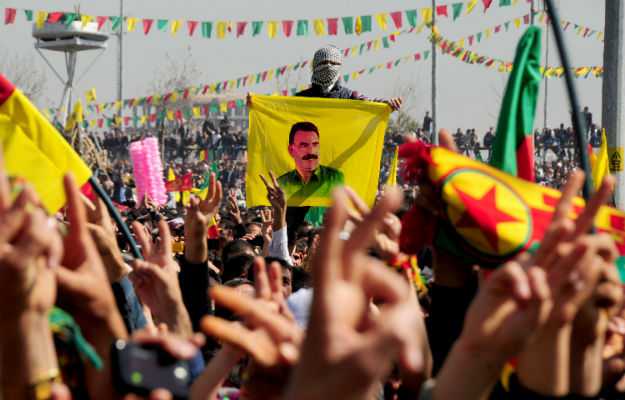Could Turkey be nearing a resolution of its Kurdish problem? The March 21 ceasefire announcement from Abdullah Ocalan, the jailed leader of the Kurdistan Workers’ Party (PKK), has certainly raised hopes of a resolution. The optimism, however, masks significant obstacles, not least of which is the fact that Prime Minister Recep Tayyip Erdogan faces structural incentives that could undermine his motivation to pursue peace as strongly and urgently as might be wished. The process could easily breakdown amid recrimination and a return to violence.

Turkey’s Justice and Development Party (AKP)-led government and the PKK have been negotiating for several months. The authorities have allowed some members of the pro-Kurdish Peace and Democracy Party (BDP) to visit Ocalan in jail and communicate his position to the rest of the PKK’s leadership, and the broad outlines of a deal are slowly emerging. The PKK will gradually pull back its nearly 2,000 armed militants operating in Turkish territory. In the meantime, the AKP and the BDP will start negotiations on a new constitution and revisions to Turkey’s legal framework needed to ensure equal treatment for Kurds. The final stage would be the normalization of relations. Both sides will continue to maintain momentum by making small-scale concessions, though significant steps will have to wait until the PKK has fully withdrawn from Turkish territory.
For both sides, a ceasefire offers significant potential benefits and little downside, at least in the near term. The Turkish population is more inclined to consider a peace deal than at any time in the past few decades. Erdogan would reap considerable electoral benefit from resolving the long-standing violence and tension (though there would be little fallout if the deal were to break down). The BDP would gain electorally for improving, even if only marginally, Turkey’s legislative framework regarding the Kurdish minority. The PKK leadership would avoid fighting on two fronts simultaneously given developments in northern Syria-while also giving their militants time to recover from the effects of the violent 2012 campaign in south-eastern Turkey. And then there are more intangible factors: The PKK leaders are thought to be tired of life on the run, and Ocalan too is believed to be angling for house arrest rather than jail.
But despite the momentum and the benefits from a ceasefire, peace could founder on one of several issues. While the mood in the country is promising, there is a wide gap between Kurdish demands and what the government can realistically concede ahead of the upcoming elections. There is also a very real danger that some factions in the PKK and the broader Kurdish movement may feel betrayed by the final deal between the government and Ocalan. That disappointment could trigger a resumption of PKK insurgency.
The most immediate challenge, though, will be implementing the PKK’s withdrawal without violence, particularly given that a law assuring their safety appears unlikely at this point. The Turkish military as well as nationalist groups will find it very difficult to allow armed PKK militants to simply leave for safety in northern Iraq. And the PKK will not consider giving up their weapons, especially given the situation in Syria.
Finally, there are concerns about the process. Neither the government nor the Kurdish nationalists have any real experience in handling peace talks and the compressed time frame of less than one year to withdraw troops and write a new constitution significantly increases the complexity. Similar developments in other parts of the world took many years to complete and there is no guarantee that either side will be able to manage any potential moments of tension.
Naz Masraff is an analyst with Eurasia Group’s Europe practice.
via Turkey’s fragile peace | The Call.

Leave a Reply